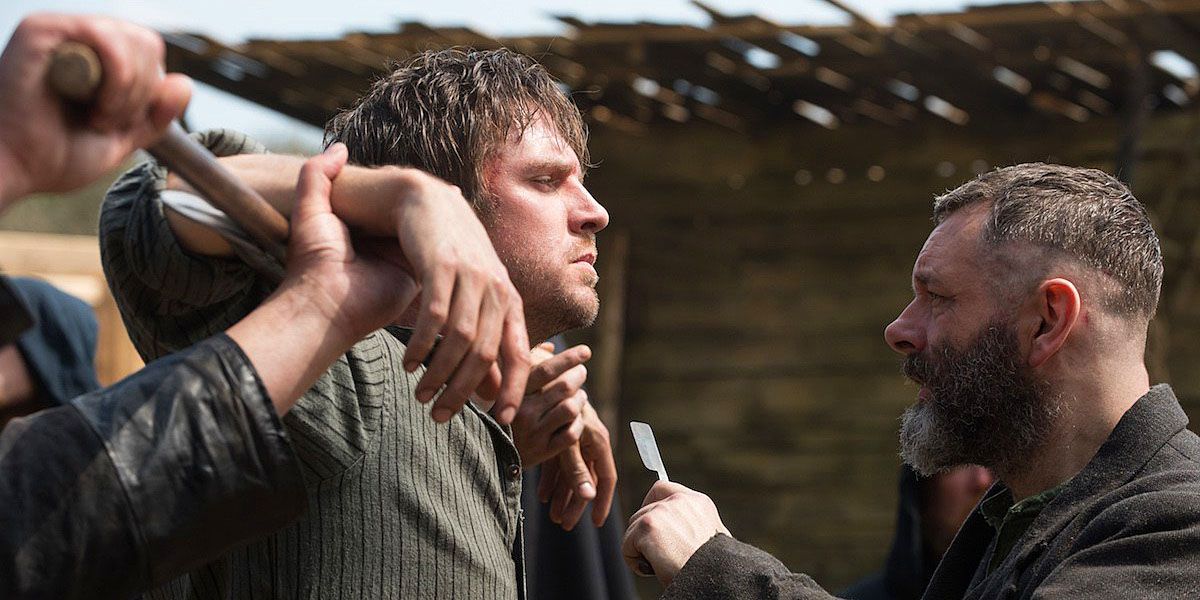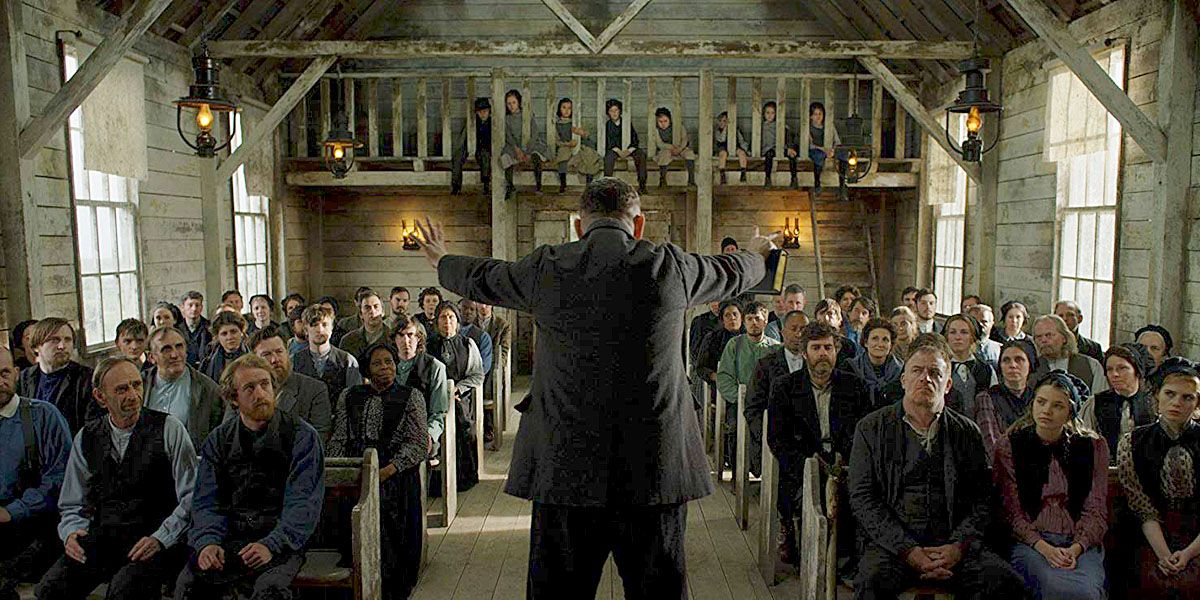Netflix’s Apostle has everything it should need to be one of the year’s best horror films. The cast, headlined by Dan Stevens and Michael Sheen, is stacked with underrated actors. The premise, about a man who goes undercover in a cult to save his sister, has intrigue but is open enough to go anywhere. The director, Gareth Evans, has two of the greatest action films of all time under his belt in The Raid and its sequel, and is returning to cult horror after an acclaimed segment in V/H/S 2. But it's a shame the movie never quite comes together, giving each of its elements a chance to shine yet never quite working as a whole.
In The Raid and its sequel, Evans took a huge swing for the fences. The first is a claustrophobic masterclass in action cinema, and the second is a flawed but ambitious crime saga, punctuated by the director’s trademark eye for fight scenes. Apostle is every bit as ambitious as those first two efforts, but lacks the narrative cohesion to reach those highs. The action beats remain better than pretty much anything else attempted these days, but they’re strung together by a lackluster script. It feels as if the movie can’t decide whether it’s psychological horror, a gore showcase or an all-out action film, and is never able to mesh the three into something coherent.
RELATED: Gareth Evans' Bloody Apostle Trailer Pits Dan Stevens Against a Cult
Stevens stars as Thomas Richardson, who in 1905 goes undercover on an island inhabited by a fanatical cult to rescue his sister, whom they’ve kidnapped. From there, the plot takes more twists and turns than one can count, and it’s best to go in as blind as possible; if you can avoid the trailers, do so at all costs. The opening hour or so, before it takes that darker turn, is a slow burn that feels closer to Karyn Kusama's The Invitation than the wild action of The Raid. It’s this quiet, more deliberate segment where Apostle shines brightest, utilizing Evans’ proclivity for visual storytelling but never indulging in it. The film uses the freedom of having extra time to build an uneasy tone and establish the characters, while also planting seeds that there is something deeply wrong on the island.
The broad cast of characters is actually quite deep, from young lovers played by Bill Milner and Kristine Froseth to a disgruntled villager portrayed by the scene-stealing Ross O’Hennessy. The strongest of these supporting players are Sheen as the town prophet and Lucy Boynton as his daughter Andrea. Sheen is brilliant as the prophet, confident as he leads the village, but a crumbling, weak man when confronted with difficulty. He has the appearance of strong leadership in front of the cult members, but Sheen shows that he’s riddled with self-doubt, a shadow of the man who gives the sermons. Boynton is even better as his daughter, one of the village’s most compassionate members, sometimes disobeying leadership to show kindness. Her performance demonstrates just how earnest Andrea is, imbuing her every word with meaning, a refreshing change of pace from the rest of the manipulators in the cast.
Page 2: [valnet-url-page page=2 paginated=0 text='The%20Well%20Directed%20But%20Poorly%20Written%20Last%20Hour%20Sinks%20The%20Otherwise%20Great%20Apostle']
Unfortunately, a great roster of underrated actors is not enough to carry a film, and in the end an inconsistent script lets them down. The superior first act sells a growing dread quite well, slowly building the tension and teasing the darkness to come. As Stevens creeps around the creepy village, he finds clues and begins to piece together the evil that lies beneath the charming veneer of the town.
In movies that slowly build to a tone shift, there is usually a moment where the director makes a clear statement to the audience: This is no longer the same film. In Jeremy Saulnier’s Green Room, it switches from a tense thriller to a massive bloodbath within seconds, punctuated by a character’s arm taking a brutal chop from a machete. It’s this sort of moment that’s missing from Apostle, which leads to a really muddled transition. Based on the appeal of the trailers and marketing, Apostle was clearly leading to a gut-wrenching shower of gore from the start. Once it finally does reach this long-awaited payoff, it lands with a thud, killing off a primary character in a mean-spirited, offhanded way that doesn’t come off meaning anything.
RELATED: Overlord Is (Almost) Everything You Want From a Zombie Nazi Movie
From a technical perspective, every moment of Apostle is brilliantly crafted. Even the long stretch of brutality at the end, while unearned, is unmatched in modern filmmaking. Evans puts his action sensibilities to use and delivers one pulse-pounding barbarity after another. His kinetic, free-flowing camera keeps the stomach-churning bloodshed in clear view and forces you to watch, which is sure to have viewers at home screaming from their sofas. It's just really disappointing that these scenes, while well-directed, don’t gel with the rest of the film, killing off the characters with glee as if they meant nothing to the story.
In Netflix’s Apostle, life is a never-ending hell. You can choose to believe in a God who demands living sacrifices or nothing at all, but you’ll probably meet an agonizing end anyway. The first hour or so builds to a nightmare of a conclusion, but it takes a far too convoluted path to get there. Fans of horror cinema with a heavy dose of nastiness, or those who are particularly attached to Evans’ unique brand of brutality, will surely find something to love. But after making two of the greatest genre films of the century, it’s disappointing to see the director brush with greatness yet fail to reach it.
Directed by Gareth Evans, Apostle stars Dan Stevens, Michael Sheen and Lucy Boynton. The film screened at Fantastic Fest in Austin, Texas ahead of its Oct. 12 release on Netflix.


